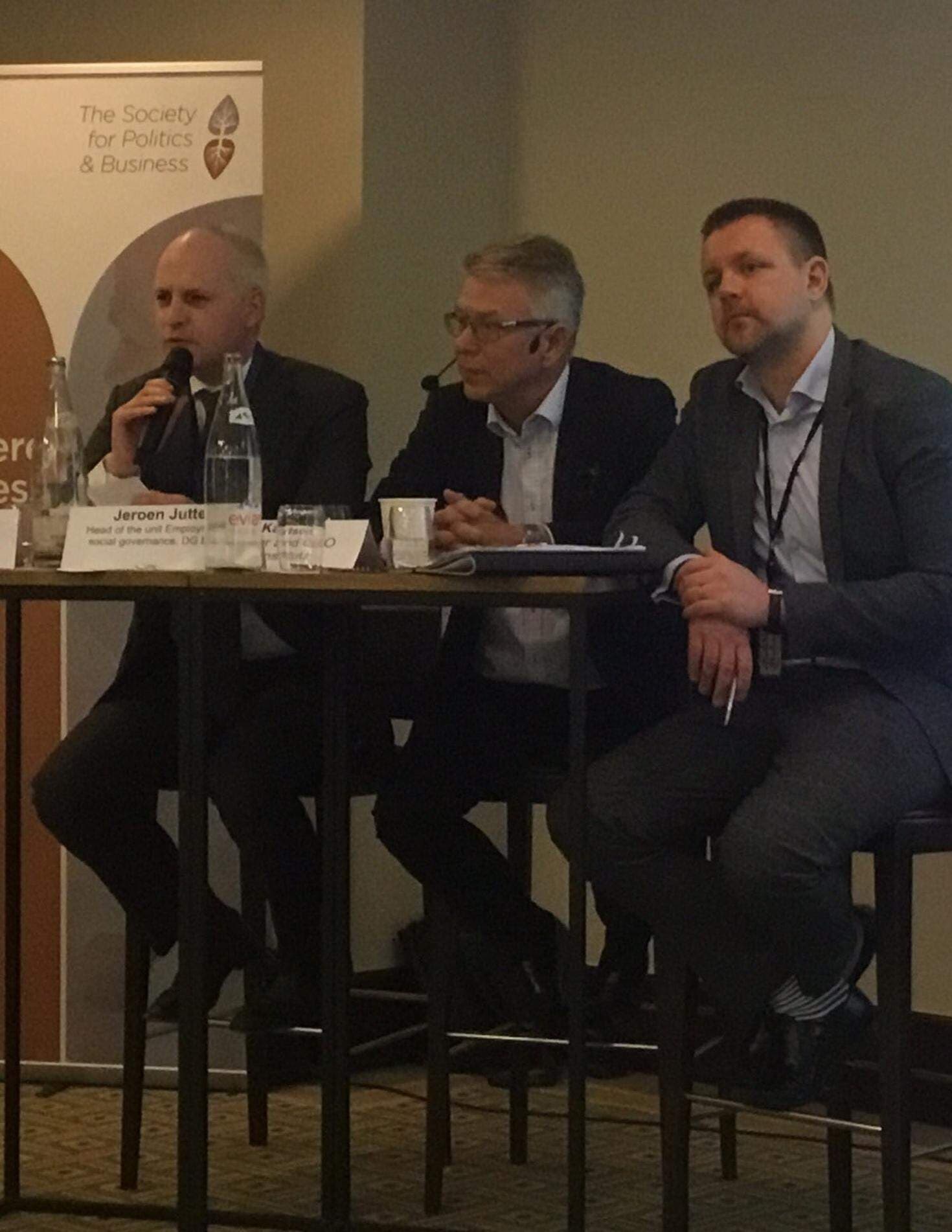What impact of the Social Pillar on EU prosperity?
The EU’s approach to social policy is currently changing. In November 2017, the European Pillar of Social Rights (the Social Pillar) was proclaimed as a visionary document setting up goals for an upward convergence in this area. In this year’s State of Union address, the president of the EU-commission Jean-Claude Juncker asserted that “It is time we turned the good intentions that we proclaimed at the Gothenburg Social Summit into law”. And, as a matter of fact, this process is well under way.

The potential effect of this new development was the topic of a seminar held on Tuesday 16 October titled “What impact of the Social Pillar on EU prosperity?” Following the presentation of the the report “The European Social Pillar: A Threat to Welfare and Prosperity? by Professor Nils Karlson (Ratio Institute)”, a lively panel discussion was held by MEP Fredrick Federley (ALDE), and Jeroen Jutte, Head of the unit Employment and social governance at DG EMPL, with Dr. Gabriella Sebardt, Director Social Affairs at the Confederation Swedish Enterprise, acting as moderator. The event was hosted by the latter organisation in collaboration with the Society for Politics and Business (Sällskapet för Näringsliv och Politik – SPN).
Dr. Sebardt started the discussion by confirming that signs had been visible well before the Gothenburg Summit, prompting joint actions by the Swedish social partners.
Professor Karlson elaborated on the Social Pillar’s possible consequences for the direction in which the EU is heading. “The Social Pillar will not only affect member states’ unique welfare systems but will also change their labour market models”, Karlson said. Setting objectives at the EU level legitimises EU legislation, rendering the subsidiarity principle a tool for centralisation, he contended. In the short-term, this will damage specifically the Scandinavian and Anglo-Saxon labour market models but in the long-term, it will disfavour all member states, threatening both prosperity and welfare. Instead of a one-size-fits-all-policy, the EU should encourage reforms in member states with weak governance, fragile welfare states, and uncertain labour markets. Such institutional competition allows for innovation (and policy learning) as well as accountability, the latter being important to ward off populist EU-critical movements.
Mr. Jutte painted a more visionary picture of the Social Pillar. He emphasized the importance of European competiveness when confronted by demographic challenges, global actors, and digitalisation’s impact on the labour force. Faced by these challenges, the EU needs to keep its global role and to strengthen growth by creating a European social dimension. Furthermore, the Social Pillar will not only benefit all member states, but also create an advantage for Swedish companies wanting to establish themselves in an eastern member state. According to Jutte, some member states need the Social Pillar due to uncertainty in their labour markets. “It is a shared commitment”, Jutte said. This, according to Jutte, will not go against the Swedish model – that is just a “false contradiction”. On the contrary, the Social Pillar was inspired by the Nordic and Swedish systems, thus Sweden should be pleased to spread this vital model.
MEP Federley was strongly critical of the Social Pillar and pointed out the difference between “Europe as a super state”, as phrased by the leader of ALDE-group Verhofstadt, and “federalism” as it ought be with distinct levels of competence. Federley posed the question why the EU should present one universal solution for all the member states, when some states already have well-functioning labour markets. According to Federley, the EU should instead advice those member states that “don’t do their homework” and encourage them to adopt better labour market systems with, for instance, regulation by collective agreements. The Social Pillar will not only give the populist groups more ammunition according to Federley, but eventually also risk tearing the union apart.
The discussion also had lively input from the audience on how the Social Pillar will impact different actors within the EU. Historically, the EU has always had a social dimension with some conferred powers in the area of social policy. Yet recently, the proposed directives are becoming far more detailed, leading to questions about whether the Social Pillar could interfere too much with well-functioning national labour-market systems. This is the backdrop to the seminar and the reason for its topical question: what impact will this new development have on European prosperity going forward?
Aras Amin